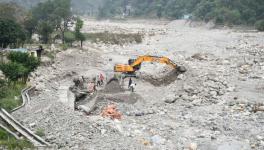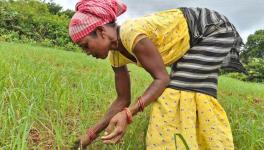Experts Call for Wider Adoption of Renewable Energy for Agriculture in Hindu Kush Himalayas

Image Credit: Wikipedia
Patna/Kathmandu: Amid climate change posing a threat to agriculture and food security, the use of green energy in place of polluting energy will increase yields, provide easy irrigation, food security, help farmers to practice sustainable farming.
Experts at the Kathmandu-based International Centre for Integrated Mountain Development (ICIMOD) and the Alternative Energy Promotion Centre (AEPC) have called for harnessing renewable energy to revolutionise food security in the mountains of the Hindu Kush Himalayas (HKH).
According to the experts, rising temperatures are compounding the risks to food security in the mountains of the Hindu Kush Himalayas. Traditional irrigation methods and limited access to energy are hindering agricultural productivity in these high-altitude regions.
"Clean energy – hydro, solar, biomass and wind – is abundant in the Hindu Kush Himalaya. With rising temperatures compounding the risks to food security, it’s crucial that agriculture, which provides one- fifth of the region’s gross domestic product, embraces renewables’ potential to transform yields, food security, and to transition away from polluting energy sources," experts said at a conference in Kathmandu.
The conference, titled "Advancing Productive Uses of Renewable Energy in Agriculture in the Hindu Kush Himalaya," explored the potential of renewable energy sources to transform mountain farming. The event brought together stakeholders to discuss strategies for scaling up these solutions for mountain communities in the HKH.
Experts said there were irrigation challenges in HKH. With 87% of Nepal's cultivable land in the hills and mountains, lacking year-round irrigation, the conference plans to explore how renewables can address this critical need and boost food security.
"Renewable energy can be used to transform mountain agriculture and irrigation practices, leading to increased productivity and resilience. There is a need to focus on fostering collaboration among stakeholders to facilitate the wider adoption of renewable energy solutions in mountain communities," they said.
"Renewable energy solutions are key to tackling challenges and enhancing the resilience of mountain agriculture. We have the potential demand of 1,300 megawatts of renewable energy for irrigation,” stated Nawa Raj Dhakal, Executive Director of AEPC, Nepal.
Izabella Koziell, Deputy Director General of ICIMOD, said "It's time to harness clean energy to secure food security and sovereignty."
Get the latest reports & analysis with people's perspective on Protests, movements & deep analytical videos, discussions of the current affairs in your Telegram app. Subscribe to NewsClick's Telegram channel & get Real-Time updates on stories, as they get published on our website.
























